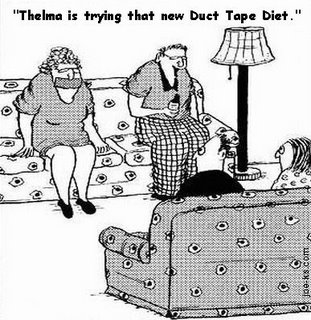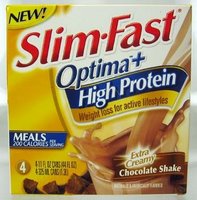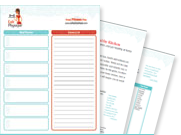
Appetizer
Pay far LESS attention to diets, and make healthy lifestyle changes instead. It’s not that diets don’t work because oftentimes they do. It’s just that they usually involve drastic measures that are too hard to maintain, and many can take a toll on your body over time.
Also, being “on a diet” denotes that at some point you eventually plan to be “off the diet.” And then what? You’ll go back to the unhealthy habits that led to you needing to be on a diet in the first place. It’s a vicious cycle. Because of all of the diet-hype in the media, I know this is going to be hard for some of you to accept, but DO NOT go on a diet. Just make small and permanent lifestyle changes, and they will naturally lead to a healthier you.
Main Course
According to Harry Jackson, Jr. of the St. Louis Post-Dispatch, even the experts rarely take the time to classify diets, mainly because they don’t trust most of them. But all diets generally fall under five categories.

STARVATION DIETS
What: Eat so little that the pounds fall off; also called a crash diet.
Examples: Liquid diets, cabbage soup diet, meal plans with unrealistically small portions.
Benefits: If you have the willpower to walk around hungry all the time, they do get the weight off.
Danger: Starvation diets are unhealthy. Rapid weight loss has been shown to produce rapid weight gain, leading to yo-yo dieting. Also, getting rid of weight doesn’t mean getting rid of fat. The first week or two you drop water weight. Because the diet is ill-conceived, weight tends to come back with a vengeance. Researchers will tell you it’s better to stay fat than to constantly repeat rapid weight loss and weight gain. The American Psychiatric Association also notes that starvation diets are the first visible step to eating disorders, especially in adolescent girls.
Recommendation: For adults, use this method at most for a week or two to get into a snug outfit for a special occasion. Then stop. It’s not a permanent lifestyle change. For people younger than 18 or so, don’t do it. Your bodies are at a point where exercise and healthy diets will work wonders.

PREPACKAGED MEALS
What: Drink one shake or eat one bowl of cereal for breakfast, one for lunch and a regular dinner; eat meals prepared for you, such as TV dinners; or eat nothing but Subway sandwiches for several months.
Examples: Slim-Fast, Special K, energy bars, the Subway sandwich diet, Nutrisystem, Jenny Craig.
Benefits: The meal replacements are often nutritional foods and they keep portions under control. They tend to be high in fiber, and you can vary what you eat.
Danger: Prepackaged meals don’t help you learn how to prepare your own nutritional meals or allow you to dine out. They usually work by reducing the portion sizes. On television they look ample; in front of you, they’re minuscule. Another danger is that after spending the day drinking canned shakes, you may overeat at the meal you get in the evening. Finally, some off-brand prepackaged meals are more flavorful than healthy.
Recommendations: Nutritionists often don’t care for packaged meals; they recommend that you monitor your nutrients, especially calcium intake for women, to make sure you’re getting enough. Women need to be more wary than men of prepared meals, because of women’s iron, calcium and other nutritional needs. You may need to take supplements to balance any nutrient deficits.

LOW-CARB DIETS
What: Cut out or drastically limit bread, pasta, beans and even fruits and vegetables.
Examples: The Atkins Diet, the anabolic diet, Phase 1 of the South Beach Diet.
Benefits: Scientific studies have shown the Atkins Diet can get rid of weight fast. However, the second phase of that study — under way at Washington University in St. Louis and other centers — is determining if that really means loss of fat. People who’ve been successful on Atkins love it. Those who haven’t hate it. After a two-week low-carb induction phase on South Beach, you are allowed fruits, vegetables and whole grains.
Danger: Dietitians warn that Atkins-style diets contain a lot of saturated fats and that long-term high-protein diets can harm the kidneys and other organs. Saturated fats threaten the cardiovascular system. Eating massive amounts of bacon and other fatty meat simply is unhealthy for the blood vessels, say experts. Also, the diets can cause loss of calcium. South Beach-style diets don’t get the criticism that Atkins-style diets get because of the balanced amounts of fiber and vegetables.
Recommendation: Make sure your doctor is monitoring your risk factors if you follow one of these diets. Don’t stay on such a diet for more than six months to a year — you could risk having long-term problems.

GLYCEMIC INDEX DIETS
What: Eat more good carbohydrates and fewer bad carbs. The theory is that good carbs maintain a balance in your system while bad carbs cause imbalances.
Good carbohydrates — such as fruits and vegetables — carry more nutrients and fiber and the body digests them slowly. Bad carbohydrates — such as refined white sugar — carry few if any nutrients and are digested rapidly. Rapid digestion of empty-calorie carbohydrates causes insulin chaos, which makes blood sugar rise and fall quickly. That brings on a number of problems — untimely hunger, overeating, mood swings and the like. It’s one reason sodas get so much blame for childhood obesity.
Examples: The Mediterranean Diet and Phase 2 of South Beach are built on good carbs such as beans and vegetables and minimal meat intake. Many eating programs, such as Jenny Craig and Weight Watchers, base their instructions on good carbohydrates. The Zone diet could fit in here except for a few quirks, such as allowing some junk food.
Benefits: Dietary guidelines from the U.S. Department of Agriculture call for diets with more whole grains, fruits and vegetables along with lean meat and low-fat dairy products. The foods that the USDA calls for tend to be those that are favored on the glycemic index.
Danger: Basically, none. Following a plan based on good and bad carbs is actually quite healthy. You’ll avoid empty calories and eat more nutrient-rich foods. If you embrace a glycemic index plan, you’ll be preparing a lot more meals and eating out a lot less.
Recommendations: Base a plan on the glycemic index and keep the food varied and you’ll have a healthy diet. However, overeating is overeating. If you eat twice as much of a low-calorie food, you haven’t helped yourself.

FAD DIETS
What: These are diets based on an individual’s unique experience, then sold as globally beneficial. Or, they’re based on someone trying to sell a food supplement that may be little more than a vitamin pill or laxative. Or, they give an explanation bordering on witchcraft for a natural phenomenon. Look closely and you’ll find starvation diets in disguise. Still, some are actually good eating plans cloaked in an unusual wrapper.
Examples: The cabbage soup plan is a starvation diet, even though you can have all the cabbage soup you want. The grapefruit diet isn’t magic, and the citrus acid doesn’t burn fat.
Another fad is the “Eat Right 4 Your Blood Type Diet,” which actually is a sensible eating plan in a wrapper: In translation it boils down to eating small portions of nutritious food.
Benefits: Purported benefits are all over the map, and impossible to pin down.
Danger: Any diet that doesn’t provide adequate nutrients is simply out to reduce pounds, not fat, or it’s out to reduce your bank account. Fad diets that lack balanced nutrients can lead to physical problems — even as serious as aggravating osteoporosis, the disease that weakens bones. Beware the use of the term “natural.” There’s no government regulation on what that means.
Recommendation: If the person who pushes the supplement or diet doesn’t sound like he knows what he’s talking about, avoid the diet.
Dessert
People often ask me whether I’m on a diet, and they always look at me like I’m a little weird when I say that I’m not. It’s actually kind of sad to me that making smart decisions about what I will and will not eat at any given time is looked upon as “dieting” by most.
I have, in fact, been on nearly every diet imaginable at some point during my journey, but once the initial novelty wore off, so did my commitment to the diet’s strict principles. At some point (a very hungry point might I add), I decided that enough is enough. I was tired of spending my time, not to mention my money, counting Cheerios while trying to adhere to someone else’s get-skinny-quick scheme.
Now, I strive for one simple thing…balance.
About Cafe Physique:
The mission of Café Physique is to help clients reach and exceed their personal fitness and nutrition goals. If you’re in need of an a nutritionist in Atlanta or an Atlanta personal trainer – Café Physique is the perfect solution. We offer Atlanta yoga instruction, Atlanta prenatal workouts, and Atlanta personal training. We also have private sessions of pilates that Atlanta residents are raving about. We invite you to let a member of our Atlanta registered dietitian staff or personal training team develop and implement a realistic and healthy lifestyle plan to meet your personal goals.

